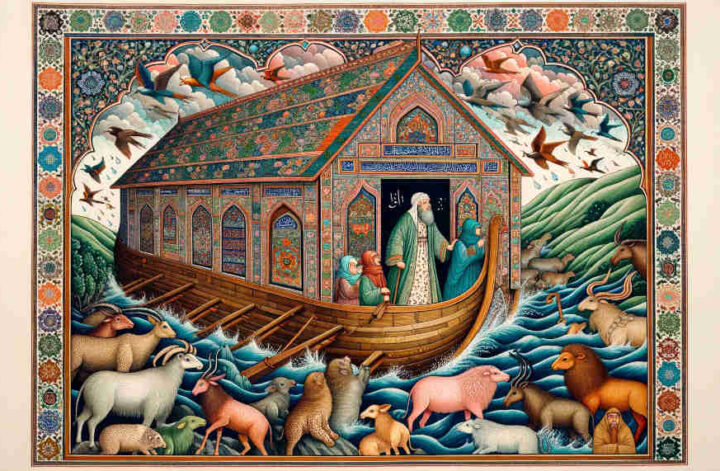Email from a reader: “Dear Rabbi Joshua, As a Jewish individual, I’ve been exploring the concept of Noahidism and the Seven Laws of Noah. I’m curious about how Islam aligns with these laws, especially considering its monotheistic nature. Does Islam adhere to the Noahide laws, particularly in the context of non-violence and non-proselytization to Jews? Also, how does this apply to other similar groups like the Druze? Regards, Aaron Levy”
Dear Aaron,
Your question reflects a thoughtful engagement with the broader religious landscape and its intersection with Jewish thought. Let’s delve into how Islam and similar monotheistic faiths relate to the Noahide framework.
Understanding the Noahide Laws:
The Seven Noahide Laws, as mentioned, are a set of universal moral principles that Judaism holds as binding for all humanity. These include prohibitions against idolatry, blasphemy, murder, theft, sexual immorality, eating flesh from a living animal, and the imperative to establish courts of justice.
Islam and the Noahide Laws:
Islam, as a monotheistic faith, aligns closely with several of these laws, particularly the prohibition against idolatry. Muslims worship one God (Allah), and this aspect of Islamic belief is generally seen as compatible with the Noahide law against idolatry. Additionally, Islamic teachings promote many ethical and moral standards that are in harmony with other Noahide laws, such as those against murder, theft, and sexual immorality.
The question of proselytization is more nuanced. While Islam does engage in proselytization, this in itself is not seen as a violation of Noahide laws. The crucial factor is whether such activities are respectful and non-coercive, especially towards Jews, in line with the principles of religious tolerance and coexistence.
Non-violence and Islamic Practice:
Regarding non-violence, it is essential to distinguish between the teachings of a religion and the actions of its adherents. While there are instances of violence perpetrated by individuals identifying as Muslims, these actions should not be taken as a reflection of Islamic teachings as a whole. The majority of Muslims around the world practice their faith in peace and accordance with ethical principles that are in line with Noahide laws.
Other Monotheistic Groups:
Regarding other monotheistic groups such as the Druze, similar considerations apply. The Druze faith is also monotheistic and incorporates several ethical teachings that align with Noahide laws. As with any religious group, the key to Noahide compatibility lies in the adherence to the core principles of monotheism and ethical conduct.
In conclusion, Aaron, from a Jewish perspective, Islam and other similar monotheistic faiths largely align with the spirit of the Noahide laws, especially in their commitment to monotheism and ethical living. This understanding fosters a sense of shared values and respect among diverse religious traditions.
Warm regards,
Rabbi Joshua
